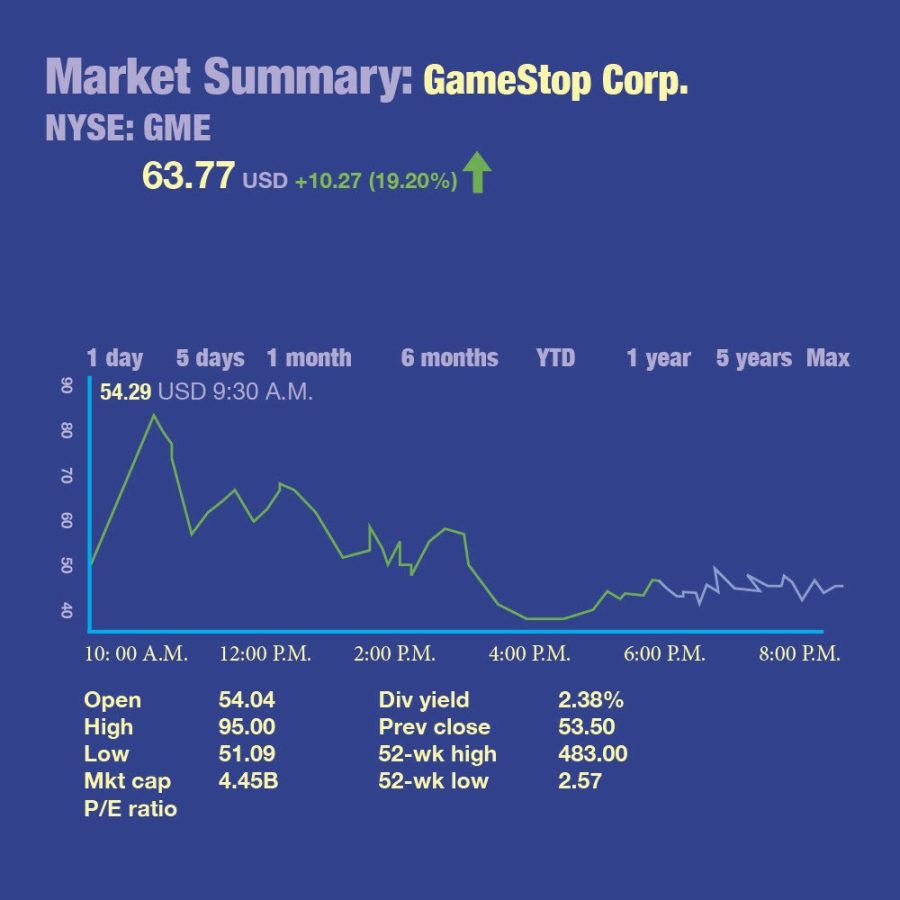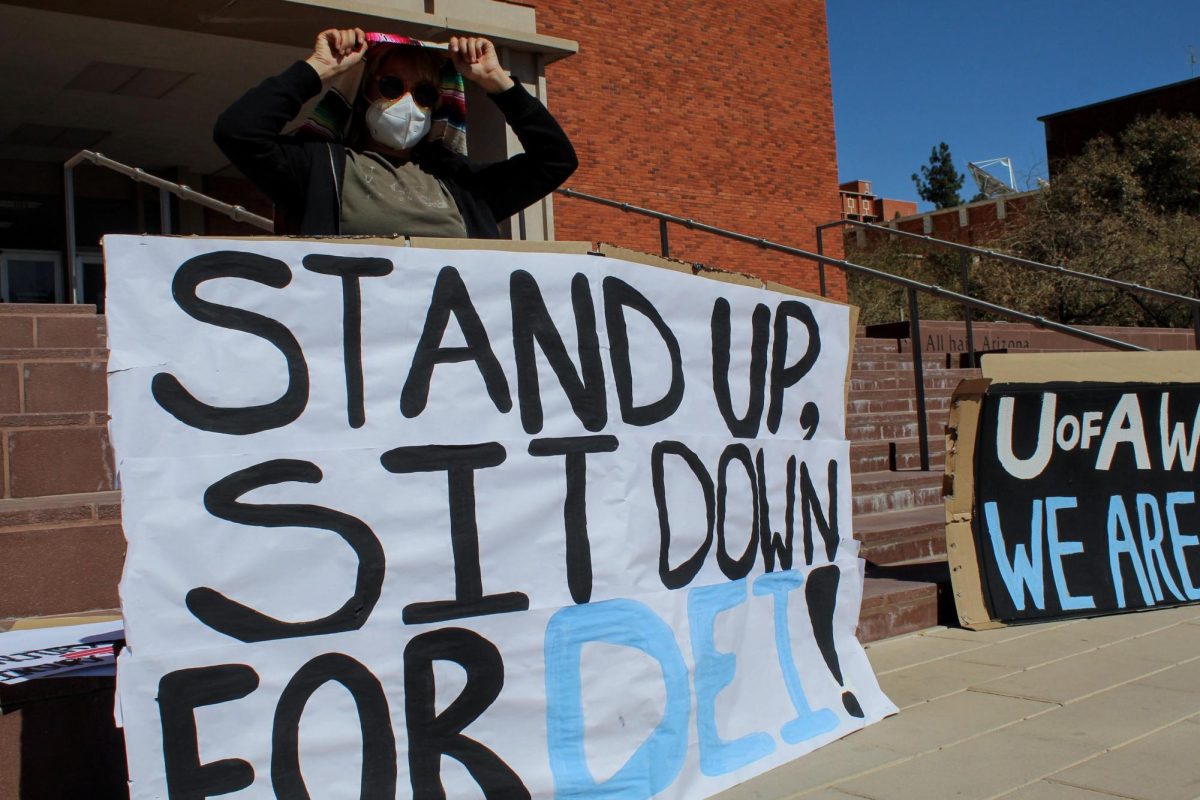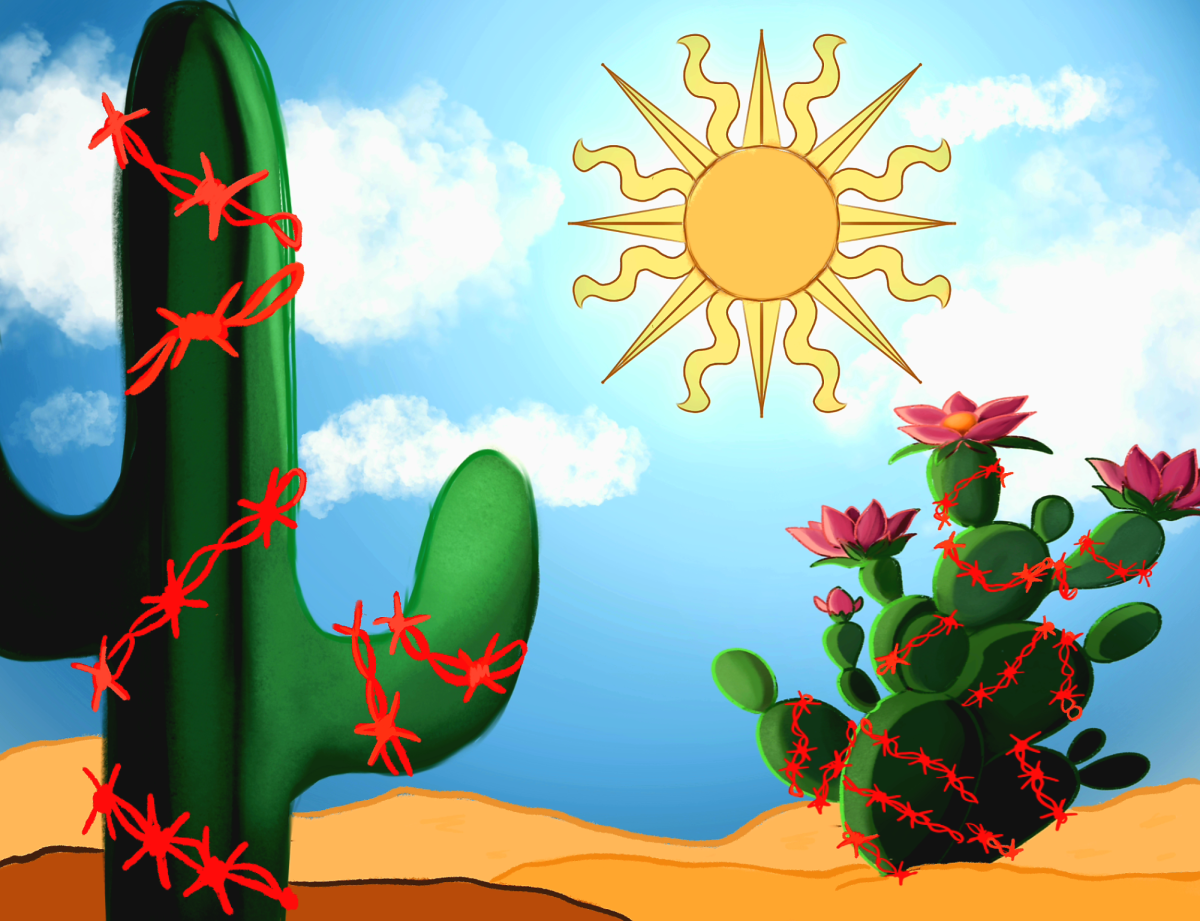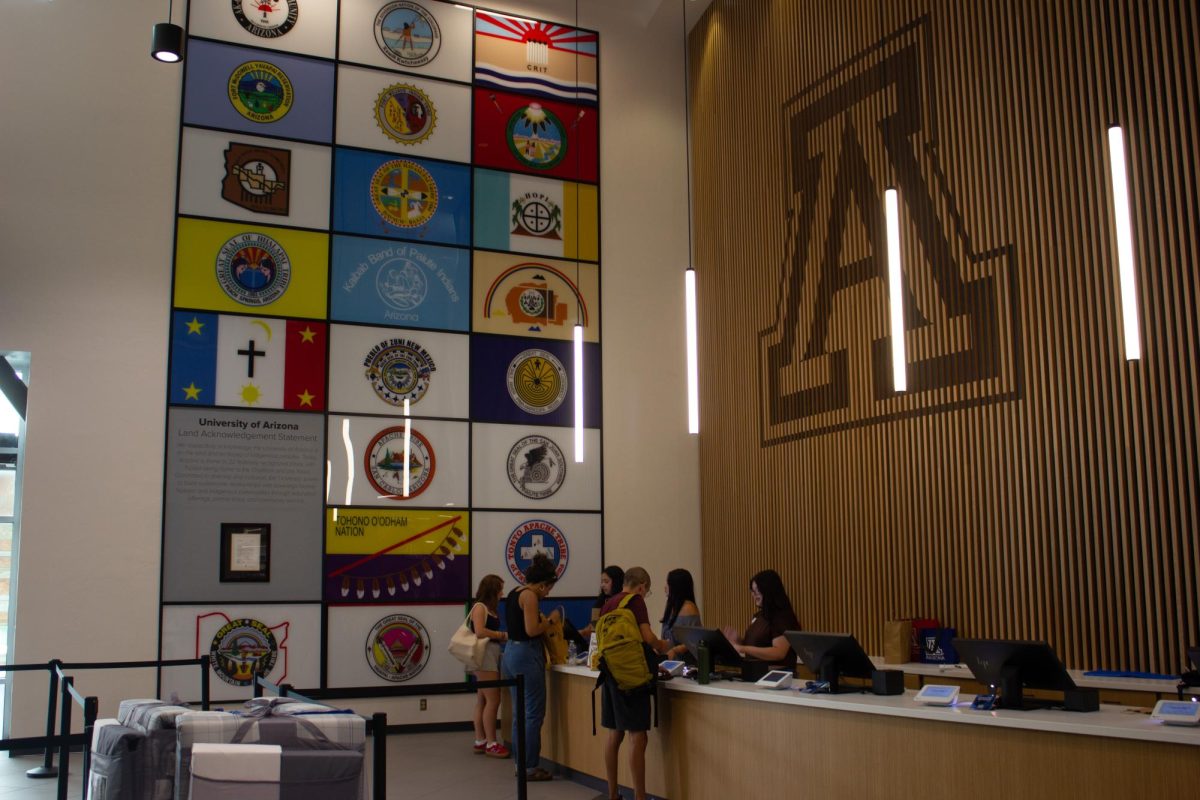On Dec. 31, 2020, one share of GameStop stock cost only $18.84. On Jan. 28, 2021, almost exactly one month later, one share of GameStop stock reached a high of $483, a jump of nearly 2,500%.
What transpired through that month and the weeks that followed Jan. 28 was a story of a dying company, of pain in a pandemic and of a cataclysm of events that changed the worlds of finance, economics and the stock market forever.
But how did this jump happen? And why did one dying video game company completely turn the stock market upside down?
In order to answer these questions, we need to look at innovation, technology, the world of Wall Street and the financial elite, and we need to look back in time.
According to Anjelina Belakovskaia, an expert in market psychology, a senior lecturer in finance at the University of Arizona’s Eller College of Management, “We live in quite a different world than it used to be.”
“Investing in the stock market used to be … like Warren Buffett’s strategy for a long time,” Belakovskaia said. “Value investing. You look at financial statements, currencies, income streams, assets … and you decide if you want to invest money in [a company]. Then, you sit.”
However, to Belakovskaia, as the world of finance changed in the last ten or so years so has investing behavior in the stock market. She said interest rates have lowered since the financial crisis of 2008.
“So now, if you put money into a savings account, it’s the same as putting money under the pillow or under the mattress,” Belakovskaia said. “You don’t make money because it doesn’t generate the interest. Which means now you are forced to do something with the money. And the best thing to do with it is put it in the stock market.”
Thus, ever since the financial crisis of 2008, more and more people from everyday walks of life took money from their savings, their retirement funds and decided to play a game traditionally owned and dominated by America’s elite.
RELATED: What 2020 has taught us
Michael Featherston, a UA senior majoring in computer science, recalled when he first downloaded an app called Robinhood in 2015.
“I started out with the app around six or so years ago,” Featherston said in an interview. “I wasn’t necessarily in it for short-term gains, I just wanted to make money.”
Davis Pearce, a senior majoring in philosophy, politics, economics and law, remembered starting to invest with a friend during his sophomore year.
“I was just with my roommate Ethan, and he got me into it,” Pearce said. “I did some research, then I started just reading discussion posts. Then, it just took over from there, like I needed to figure this out. I can go have a career or a job or whatever, but like, this is how I’m going to be successful.”
Over time, technology evolved, trading became more and more accessible and more everyday people from all walks of life turned to the stock market for supplemental income.
And as more people turned to the market, they started to realize the reality of this formerly secluded world. They realized that the stock market isn’t some complicated place only made for Ivy League graduates and millionaire investors but rather a place for anyone with any money to be able to gamble and make a quick buck.
To Belakovskaia, the market is now a casino, dominated and ran by a small group of mega-hedge investors and mutual funds, only now being played by the everyday person.
“In this case, the players are the individual investors, and the casino is all of these hedge funds,” Belakovskaia said. “And the game is in [the hedge fund’s] favor.”
This frivolity of the stock market as a casino for gambling was perhaps best shown in 2008, where a sudden burst of one market bubble created financial ruin for millions of people and created the worst global economic recession since the Great Depression of 1929.
As the housing market collapsed in 2008, a small group of investors saw the bullet before it was shot and decided to play the game and gamble against an entire industry before everything fell apart.
These investors made an investment move against the housing and real estate industry called a “short,” a gamble in the stock market meaning you are betting real money that a company or an industry is going to fail, crash and burn.
Belakovskaia was an investor in that small group.
“I have some experience from 2008 when I decided to short Lehman Brothers,” Belakovskaia said.
At that time in 2008, Lehman Brothers was one of the largest investment firms in the world.
“A short position is when you borrow shares of a company that you don’t have, you sell them, and the idea is that you buy them back at a lower price,” Belakovskaia said. “Basically, you’re selling what you don’t have. And if you don’t sell it all, you have to borrow it back.”
Belakovskaia borrowed Lehman Brothers stock, sold Lehman Brothers for a high price, made a lot of money and bought back the stock when it was much cheaper, keeping a very significant reward.
Flash forward to 2021. Take what you learned and apply it to the trading of shares of GameStop, the nationwide video game store that brings “power to the players.”
“GameStop is actually a really cool store,” Belakovskaia said. “However, everything is going online. Most kids play online, and there is visible dynamic analysis providing a lot of pressure to the company.”
Many people, save for a small few, thought that the economic recession caused by the COVID-19 pandemic was going to all but decimate the company.
“I remember reading posts about GameStop from their earnings reports back in like November,” Pearce said. “I didn’t believe it all because GameStop was a dying company, literally having their stores close out.”
A part of that majority was also the casino, the major hedge funds, the groups with enough capital to short GameStop into oblivion and make a profit. And in December and January, that’s what the casino did with some groups like Melvin Capital, a hedge fund worth billions of dollars, having short positions as high as nearly 1 million shares.
“They decided GameStop was in trouble, and they wanted to run GameStop out of existence,” Belakovskaia said.
This time, however, something inexplicable happened. Instead of a small group of investors betting against the market like in 2008, hundreds of thousands of everyday investors, many who have never traded before, decided to do the contrary and bet for it.
Thanks in large part to the organizing efforts of a small group of investors who ran a Reddit thread called WallStreetBets, thousands decided to join the gamble and take on the casino.
Over the course of one week, from Jan. 19 to around Jan. 28, thousands upon thousands of people, under the command of internet organizers on Twitter and Reddit, decided to buy shares of GameStop, driving the price up to unforeseen highs, from around $30 all the way to nearly $500.
What happened in technical terms is a financial rarity, where huge short positions get completely reversed by a wave of people buying shares en masse.
Experts call this anomaly a “short squeeze.” And what subsided was one of the most intense squeezes in financial history, with billions of dollars essentially being transferred from the accounts of Wall Street’s biggest firms to the bank accounts of thousands of individual investors.
On the short end, hedge funds on Wall Street lost big. Some hedge funds like Melvin Capital lost 53% of all of their holdings with jaw-dropping losses resulting in injecting $2.75 billion in emergency funds.
On the other side, many people joined in the squeeze for a variety of reasons, seeing this as a unique chance to make money never seen before in the world of finance.
“We saw an opportunity here. It was risky in the times that we’re living in, but we needed the payout somehow, some way,” Featherston said.
Some people were just looking for quick money with incredible returns.
“It’s unfathomable. I had four shares of GameStop at $30,” Pearce said. “I just wanted to hold it until $100 and be like, yeah, I’m done. Then it got up to $60, then $100 and then $400, it was so crazy. I would say that people just wanted to make money. And they did.”
Many investors like Pearce ran away with thousands, almost doubling their life savings in one week. Some got incredibly lucky, like Reddit investor Keith Gill, a chief organizer of the thread WallStreetBets, who turned a $53,000 investment into $47 million practically overnight.
To others, it instead was about returning power to everyday people and taking a stab at the suits of Wall Street.
“Yeah, aside from making money … my original goal was more to say screw you,” Featherston said. “I’m still holding my shares, and I’m going to hold all the way until I burn or make it to the moon.”
But for many, it was about making the most of a financial opportunity in a pandemic that, like the 2008 recession, has caused financial ruin for millions of everyday people.
“I mean, the guys on CNBC said that we’re just people in our mother’s basements, buying stocks with our stimulus checks … and I mean, yeah,” Featherston said. “A $600 stimulus check isn’t going to cover my rent or all the things I need to do in one month. So what I’m going to do with that stimulus is I’m going to throw it at Wall Street. I’m going to try and bet, and I’m going to try to take $600 and make it $2,000. Then boom, I’ve got at least a month’s rent or food or something to save you over until you’re able to go get yourself a job.”
To Belakovskaia, GameStop showed us how detached the world of finance and the stock market is from the real lives of everyday people and everyday business.
“We have restaurants going out of businesses, tons of companies going out of business, and yet, we have an all-time high in the stock market,” Belakovskaia said.
And for everyone, the world of finance, economics and the stock market after GameStop is anything but certain.
“These next few months are going to dictate what happens to the market. There could be a crash. … Honestly, no one knows,” Pearce said.
For Belakovskaia, the uncertainty today reminds her of a very difficult point in her life when she grew up: watching her home country of the USSR descend into ruin.
“When I grew up in the USSR, my grandfather worked all his life, went to World War II, taught at university and as a professor made 10,000 rubles,” Belakovskaia said. “Enough to buy three houses. And then pretty much overnight, it became worthless. … I have lived through one country being gone. Where we are going in the next few years, America, with its $28 trillion in debt … it will be defining.”
Follow Ian Tisdale on Twitter









